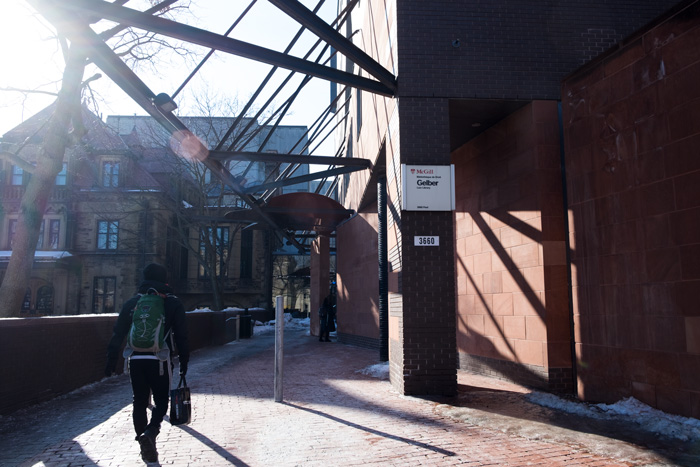After its holiday break, the Faculty of Law launched a week-long intensive course on indigenous law as part of its mandatory first-year Integration Workshop. The first of its kind at McGill, the course sets out to introduce first-year law students to indigenous legal tradition.
The 2015 Report of the Truth and Reconciliation Commission (TRC) called for Canadian law schools to educate students on the legacy of indigenous culture. Co-Chair of the McGill Provost’s Task Force on Indigenous Studies and Indigenous Education Angela Campbell weighed in on how McGill is responding to the call of the TRC.
“[The Task Force] is making important progress toward its mandate of heeding the TRC’s Calls to Action and exploring initiatives that seek to embed indigeneity into diverse activities at McGill,” Campbell said. “[This includes] student recruitment and support, teaching and learning, research, community-engagement, and capacity building.”
Coordinator of the First People’s House and Co-Chair of the Task Force Paige Isaac expressed her optimism for the course.
“It’s our hope that the Task Force recommendations help build a foundation which will empower the McGill community to […] enhance relationships between Aboriginal peoples and non-Aboriginal peoples at the university and beyond,” Isaac said.
McGill Professor Hoi Kong co-taught the course with Professors Hadley Friedland from the University of Alberta and Val Napoleon from the University of Victoria.
“The focus was on learning how to learn,” Friedland said. “My objective […] was to provide all first-year law students with some common theoretical and practical tools for approaching indigenous laws, and about resources and methods for engaging with indigenous laws today.”
The week-long course is designed to alternate between larger classes and smaller group meetings, in which students have the chance to discuss and apply the concepts they learned through a series of exercises. To respect the sensitivity that often surrounds the treatment of Aboriginal people’s cultures, the faculty took an open approach to generate discussions.
“I think that the only way for us to teach indigenous law well is to face that history square on, and to think about its impact on indigenous societies and their laws,” Kong said. “This is a historic moment and the Faculty of Law at McGill is committed to this project of reconciliation.”
Instead of teaching the students indigenous law, which is written by the Canadian government to govern relations with Aboriginal peoples, the intensive course focuses on Indigenous law, which includes laws made by Indigenous peoples for Indigenous communities.
The novelty of the course brought uncertainties. First-year law student Jan Nato explained a common concern among some of his colleagues.
“Some people feared we were viewing it through a Western lens,” Nato said. “But my analogy is that, when you first begin to learn a language, you have to translate every single word of the language in your brain. Once you truly get to know the language, you can start to think in the language.”
After the course comes to an end, students will continue to explore indigenous culture in an obligatory Criminal Justice course. In their second year, they will also be introduced to Indigenous Property Law.
Nato recounted that his overall experience was liberating. He noted that although the course might not be perfectly done, it is an important first step in understanding indigenous law.
“Oftentimes, we are stuck as observers of indigenous law in some sort of paralysis between fear of imposing ourselves and respect,” Nato said. “[The course] gave me hope that we can bridge divides. It gave me hope and tools to continue the good work.”








